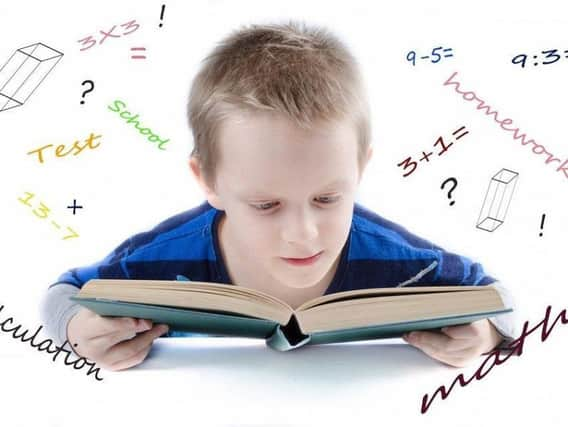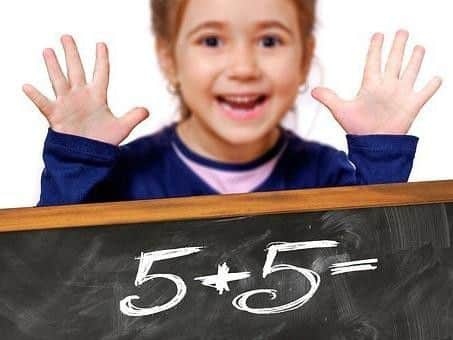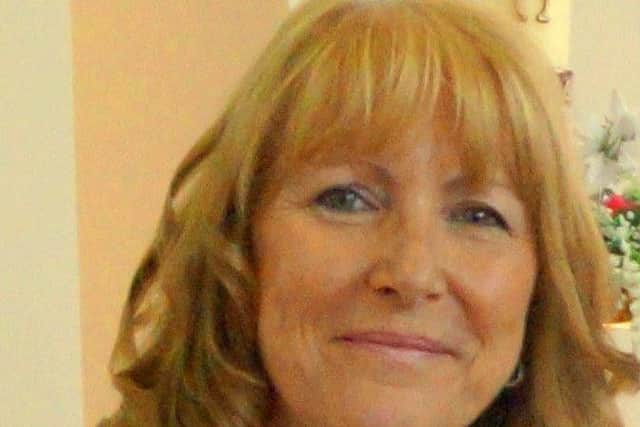Numbers can cause a myriad of problems


Ask anyone if they’ve heard of dyslexia and the vast majority of people, if not all, will say they have.
Ask if they’ve heard of dyscalculia and most will say they haven’t.


Advertisement
Hide AdAdvertisement
Hide AdFormer Lancashire primary school headteacher Kath Gleave, knows all about this – as she suffers herself.
Kath, a part-time invigilators at B&FC, says: “When I trained, we had a fair amount of advice on how to identify and help children with dyslexia. Dyscalculia was never mentioned.
“During my career, I saw many children displaying similar problems with learning maths that I could personally relate to.
“I am dsycalculic, although never officially diagnosed. Compared to dyslexia, there’s been very little research into this learning disability, so not as much is known about it.”


Advertisement
Hide AdAdvertisement
Hide AdThe Dyslexia Association has a section on their website which has a list of signs that can be indicators of dyscalculia. However, Kath adds: “As with all learning disabilities, there is no definitive set of indicators – every child will have different elements and a lot more research is needed.
“What is common, in my experience, is a very early realisation they cannot learn and perform mathematical activities at the same speed and level as their peers.”
Learning the basic building blocks of maths and the times tables are particularly problematic, quickly leading to maths anxiety starting very early on.
According to Kath, a teacher of more than 20 years’ experience, latest demands children learn their times tables by age nine “is tragic news for dyscalculic children”.


Advertisement
Hide AdAdvertisement
Hide AdShe warns: “Testing, especially timed tests are the worst nightmare; to hear children will be facing new online tests to examine their ability breaks my heart.
Dyscalculia pupils don’t have the same understanding of number, lack an innate ‘feel’ for numbers, symbols are often meaningless.
It is stated that between four and six per cent of the population have dyscalculia, however, Kath feels this estimate is low due to the “lack of available, reliable testing, lack of knowledge and difficulty with diagnosis”.
She is doing independent research into dyscalculia and maths anxiety and has completed a short online awareness training course and says the says Kath, there are ways to minimise the difficulty.


Games to play
Advertisement
Hide AdAdvertisement
Hide AdKath advises: Play plenty of games with your child to reinforce the basics but never put pressure on the child to perform under timed circumstances.
Repetition is the key and a ‘spiral’ approach, returning to the same concepts but taking them a little further on, but only if they are ready.
Dominoes are a great example. Dyscalculics have difficulty understanding the value of a symbol representing a number so get them to become familiar with a number by counting the dots on the dominoes.
Create a game with the dominoes involving practicing simple addition by adding the dots on adjoining dominoes, eventually moving on to doubling and halving, odds and evens.
Advertisement
Hide AdAdvertisement
Hide AdThe key here is to start simple and not to move on too fast.
Teach the child to ‘see’ numbers in their head as dots in groups of five, so six would be a group of five plus one dot and so on.
Another game to play with younger children is to have a number written on a card and a corresponding number of counters.
Cover up a few of the objects and ask the child to tell you how many are covered, ask how they worked it out.
Living with dyscalculia
Advertisement
Hide AdAdvertisement
Hide AdKath Gleave retired nearly three years ago as headteacher after mroe than 20 years inthe profession.
She has suffered with dyscalculia all her life and is passionate about helping identify and deal with it as a learning disability.
Since retiring she has being doing her own independent research into Dyscalculia and Maths Anxiety.
To that end, she recently completed a short online training course Dyscalculia Awareness.
Advertisement
Hide AdAdvertisement
Hide AdShe has kept in touch with education through volunteer work, becoming a school governor and by tutoring some children with maths difficulties.
She is also currently a part time invigilator with Blackpool and The Fylde College.